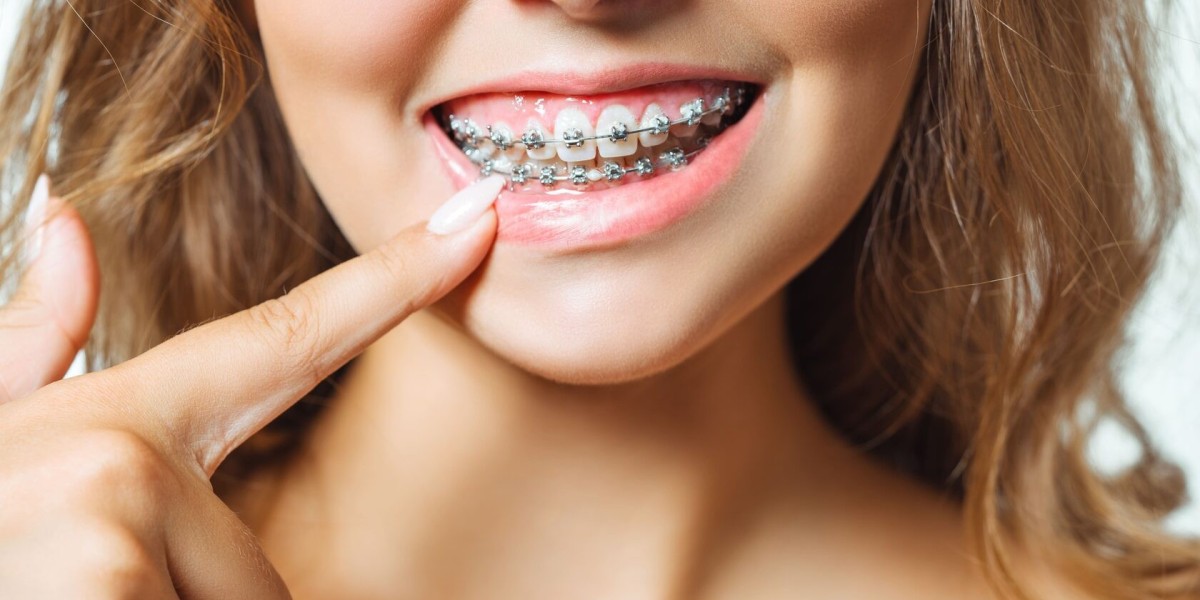Orthodontic treatment has come a long way from its ancient beginnings. What was once considered cosmetic is now a highly technical and science-driven field in modern dentistry. Behind every perfectly aligned smile is a detailed biological process combined with the expertise of a trained orthodontist. If you’re considering braces or aligners, it’s essential to understand the mechanics behind tooth movement and how this treatment benefits both form and function.
Choosing a skilled Orthodontist in Islamabad can make all the difference in ensuring your treatment is based on scientific precision, resulting in long-lasting and effective outcomes.
What Is Orthodontic Treatment?
Orthodontics is a specialized field of dentistry that focuses on diagnosing, preventing, and correcting misaligned teeth and jaws. This includes issues such as:
Overcrowded teeth
Spacing or gaps
Overbites, underbites, and crossbites
Jaw alignment problems
Facial asymmetry due to dental misalignment
The goal of orthodontics isn’t just a straight smile—it also includes improving oral health, speech function, chewing efficiency, and facial aesthetics.
The Biology of Tooth Movement
The magic behind orthodontics lies in a concept called bone remodeling. When pressure is applied to a tooth over time—through braces or aligners—it causes the bone surrounding the tooth to break down on one side (resorption) and rebuild on the other (deposition). This controlled biological response allows teeth to shift gradually and safely into new positions.
Key players in this process include:
Osteoclasts: Break down bone tissue on the side where pressure is applied
Osteoblasts: Build new bone tissue on the tension side
Periodontal Ligament (PDL): The connective tissue that helps teeth respond to pressure and signals bone cells to initiate remodeling
This entire system is influenced by age, genetics, diet, oral health, and even hormones, which is why expert guidance is essential throughout treatment.
The Physics of Braces and Aligners
Orthodontic appliances work on the principle of controlled force and direction. Here’s how:
? Braces
Braces consist of brackets (bonded to teeth), archwires (connecting brackets), and elastic bands. Each component plays a vital role:
Archwire tension delivers continuous pressure
Brackets act as anchors to guide each tooth's movement
Elastic bands help correct jaw alignment by guiding bite patterns
Adjustments every few weeks maintain optimal force levels, ensuring that movement occurs gradually without damaging teeth or roots.
? Clear Aligners
Aligners like Invisalign use thermoplastic trays customized to your mouth. Each set is slightly different, gently moving teeth step-by-step. While the science is similar, aligners depend on patient compliance since they must be worn 20–22 hours per day for best results.
The Role of Growth and Age
Orthodontic treatment outcomes are significantly affected by age. In children and teenagers, bones are still growing and more malleable, making treatment faster and more responsive. That’s why early intervention orthodontics is often recommended for younger patients.
In adults, the bone remodeling process is slower, and issues like gum disease or bone loss may complicate movement. Still, modern techniques and appliances have made adult orthodontics highly effective when guided by an experienced orthodontist in Islamabad.
Diagnostic Tools Behind Orthodontics
Today’s orthodontists use advanced technology to improve accuracy and patient comfort. Here are some diagnostic tools used to map out your smile transformation:
Digital X-rays: Assess bone structure, root position, and jaw relationship
3D Scanners: Create a digital replica of your teeth and bite for precise planning
Cephalometric Analysis: Evaluates facial proportions and how teeth impact appearance
Photographs: Document progress and changes over time
These tools allow for data-driven decisions, making modern orthodontic care more efficient and predictable than ever before.
Types of Orthodontic Appliances
The science behind each appliance varies slightly depending on its function and design:
1. Fixed Appliances
Traditional metal braces
Ceramic (tooth-colored) braces
Lingual braces (placed behind the teeth)
2. Removable Appliances
Clear aligners
Retainers
Palatal expanders (especially for kids)
Each appliance is chosen based on your dental issue, age, and lifestyle preferences. A knowledgeable orthodontist will explain the pros and cons of each system, ensuring the right fit for your goals.
How Long Does Orthodontic Treatment Take?
The timeline for treatment varies but typically ranges from 12 to 30 months. Factors that influence duration include:
Severity of misalignment
Type of appliance used
Patient age and bone responsiveness
Compliance with instructions (e.g., wearing aligners or elastics properly)
Your orthodontist will design a custom treatment plan, including progress milestones and adjustments along the way.
Common Myths Debunked
Orthodontics is often surrounded by outdated misconceptions. Let’s clear a few:
"Braces are only for kids" – Not true. Many adults now opt for braces or aligners.
"Braces weaken teeth" – They don’t. Poor hygiene during treatment might, but the treatment itself is safe.
"You’ll have to wear them for years" – Some treatments are completed in as little as 6 months with newer technologies.
Understanding the real science behind orthodontic care can ease anxiety and make you feel empowered in your decision.
The Importance of Choosing the Right Orthodontist
Orthodontics is both an art and a science. Success depends on the skills, training, and diagnostic approach of your orthodontist. You need a professional who not only understands the mechanical side of treatment but also the biological and aesthetic aspects of facial harmony.
That’s why choosing a qualified Orthodontist in Islamabad is crucial. Look for a clinic that offers modern equipment, a personalized approach, and transparent communication regarding your progress and results.
Why Trust SKN Cosmetic Clinic?
If you're ready to begin your orthodontic journey, there's no better place than SKN Cosmetic Clinic. Our expert orthodontists use the latest diagnostic tools and advanced treatment options to provide care that’s both precise and patient-centered.
We understand the science, but we also understand your smile goals. From children needing early intervention to adults seeking discreet correction, we create custom plans that deliver healthy, long-lasting results.






